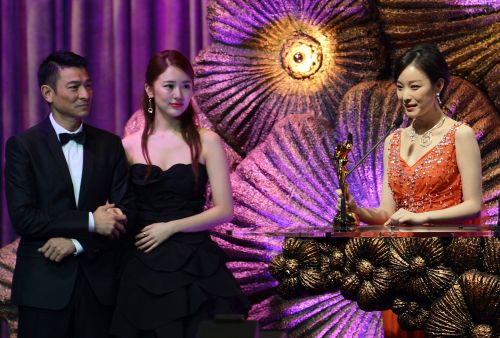HONG KONG (AFP) ― China’s booming movie industry is attracting interest from Hollywood heavyweights, as they chase bigger box-office returns to offset tighter margins at home.
Films with Asian and especially Chinese themes are becoming more prominent after Hollywood hit a 16-year low in movie tickets sales last year, while some of its biggest studios are setting up shop in the country.
DreamWorks Animation is setting up a China base while Legendary, the studio behind Christopher Nolan’s wildly successful “Batman” series as well as “Clash of the Titans” and “The Hangover” franchises, is also developing a venture.
Keanu Reeves is making his directorial debut with “Man of Tai Chi” which is currently filming in China and Hong Kong, while Aamir Khan’s Bollywood comedy drama “3 Idiots” is in talks for a Hollywood remake.
“It’s a hugely interesting time now,” said executive producer Tracey Trench, whose projects have included “Just Married” and “Ever After”.
“The United States is still the biggest market. Within the next 10 years, we are not going to be the biggest market place, everything is going to change,” she told a forum at the Hong Kong International Film and Television Market (FILMART) in March.
China’s rapidly expanding film industry continues to break new ground and set new records, collecting an estimated 13.1 billion yuan ($2.07 billion) in 2011 ― up by around 30 percent on-year.
Around 2,500 more cinema screens are expected to be unveiled across the country this year, with its market now the third largest behind Japan and the United States.
This compares with a clear slowdown in North America.
The Motion Picture Association (MPA) says box office takings from 2007 to 2011 in the United States and Canada grew only 6.3 percent to $10.2 billion, while the Asia-Pacific region saw 38-percent growth to $9 billion.
Zhang Yimou’s “The Flowers of War” was China’s biggest box office smash of the past 12 months, starring Oscar-winning American actor Christian Bale.
It collected around $90 million from the Chinese box office while picking up a nomination for best foreign language film at the prestigious Golden Globes in the United States.
 |
Hong Kong actor Andy Lau (left) and South Korean actress Yoon Eun-hye (center) look on as Chinese actress Ni Ni speaks after winning the Best Newcomer Award for the film “The Flowers of War” at the 6th Asian Film Awards in Hong Kong on March 19. (AFP-Yonhap News) |
It comes as Hollywood looks to increasingly give a Chinese angle to its output.
“There are so many stories that you can tell and right now China is hot, so many people want to know more,” said screenwriter Glenn Berger, who wrote the popular 2008 animated Hollywood comedy “Kung Fu Panda” and its 2011 sequel.
A box-office hit in China, the film told the story of Po, an oversize and unfit panda who dreams of becoming a martial arts hero. But Berger said the movie was never really about China or kung fu.
“We were just trying to tell a classic underdog story, not particularly a Chinese story,” he said of the film.
“But it was very well received in the Chinese market because they thought it was very respectful of Chinese culture,” he said.
Kung Fu Panda raked in an estimated $630 million, with $26 million from the Chinese mainland alone.
Hong Kong’s FILMART exhibition is Asia’s major entertainment industry market and one of the top three events of its kind in the world.
This year it attracted a record 648 exhibitors and more than 5,700 buyers, up 14 percent from last year. The U.S. pavilion had over 40 U.S. exhibitors, or about 25 percent more than last year.








![[Today’s K-pop] Blackpink’s Jennie, Lisa invited to Coachella as solo acts](http://res.heraldm.com/phpwas/restmb_idxmake.php?idx=644&simg=/content/image/2024/11/21/20241121050099_0.jpg)